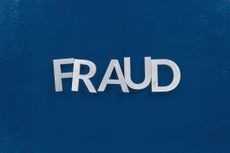High Earners: Beware of These Illegal Schemes to Lower Taxes
The IRS says high-income filers are targets for several illegal tax schemes that promise tax benefits.


The IRS is warning wealthy taxpayers of illegal tax strategies pushed by scammers and dishonest promoters. High earners are told these strategies will reduce their taxable income, but following through with the schemes could land taxpayers in big tax trouble.
The illegal tax strategies could “leave victims with civil or criminal tax penalties,” said IRS Commissioner Danny Werfel said in a release about the scams.
Given IRS efforts to increase tax enforcement with a focus on high earners, the risk of setting off audit red flags and facing civil or criminal penalties could be higher for the wealthy this year.

Sign up for Kiplinger’s Free E-Newsletters
Profit and prosper with the best of expert advice on investing, taxes, retirement, personal finance and more - straight to your e-mail.
Profit and prosper with the best of expert advice - straight to your e-mail.
Here’s more of what you should know.
‘Tax strategies’ for high earners
Abusive promoters may promise to lower taxable income with strategies that seem “too good to be true.” Some schemes deceive high earners into unknowingly inflating charitable donations or eliminating capital gains tax using illegal strategies. But these ‘tax strategies’ could cost high earners money rather than helping them save. Here are some common schemes, according to the IRS.
Misuse of a trust to avoid capital gain: Dishonest promoters might encourage high earners to wrongly claim appreciated assets transferred to a charitable remainder annuity trust (CRAT).
- This increases the cost basis, so when taxpayers sell the asset, there is no realized gain. The profit from the sale is then used to purchase a single premium immediate annuity (SPIA).
- Filers only report a small portion of the annuity as income.
Using monetized installment sales to delay gains: For this scheme, abusive promoters sell taxpayers monetized installment sales through abusive tax shelters. This delays the payment of the principal and the realized gain, sometimes for several years.
Inflating charitable deductions for art: The art donation tax scam isn’t new. As Kiplinger reported last year, promoters urge wealthy filers to purchase art at seemingly discounted rates and delay donations until the art has significantly increased in value. However, the art’s market value is misrepresented, which can cause filers to overpay and claim incorrect deduction amounts.
Legal tax strategies for high-income filers
There are several legal tax strategies high earners can utilize to lower their tax liability, including claiming proper charitable deductions, and as Kiplinger has reported, ways to avoid capital gains tax. Taxpayers shouldn’t feel the need to steer clear of deductions they are legitimately elgible for. However, wealthy filers should be cautious of whose advice to trust.
The IRS reminds high earners that “relying on an independent tax or legal professional can help avoid problems with aggressive promoters.”
IRS crackdown for high earners
The IRS’ increased efforts to restore fairness to the tax system include targeting millionaire tax evaders and wealthy tax cheats, so high-income taxpayers are on the agency’s radar now more than ever. Claiming charitable deductions and failing to report all taxable income, which are focuses of the abusive tax schemes, can increase the risk of an audit.
Additionally, the IRS’ use of AI can now help identify certain patterns and trends when selecting returns for audit, making it more likely for the agency to catch tax cheats. And you don’t need to be a millionaire to catch the IRS’ attention. If you make $400,000 or more per year, the agency considers you a high earner.
Related Content

Katelyn has more than 6 years’ experience working in tax and finance. While she specializes in tax content, Katelyn has also written for digital publications on topics including insurance, retirement and financial planning and has had financial advice commissioned by national print publications. She believes that knowledge is the key to success and enjoys helping others reach their goals by providing content that educates and informs.
-
 Strategies to Optimize Your Social Security Benefits
Strategies to Optimize Your Social Security BenefitsTo maximize what you can collect, it’s crucial to know when you can file, how delaying filing affects your checks and the income limit if you’re still working.
By Jason “JB” Beckett Published
-
 Don’t Forget to Update Beneficiaries After a Gray Divorce
Don’t Forget to Update Beneficiaries After a Gray DivorceSome states automatically revoke a former spouse as a beneficiary on some accounts. Waivers can be used, too. Best not to leave it up to your state, though.
By Andrew Hatherley, CDFA®, CRPC® Published
-
 'Instant' EV Tax Credits Are a Hit: $580M Paid This Year
'Instant' EV Tax Credits Are a Hit: $580M Paid This YearEV Credits Claiming federal electric vehicle tax credits at the point of sale is a new and popular option in 2024.
By Kelley R. Taylor Last updated
-
 Retirees Face Significant Tax Bills Due to Fraud
Retirees Face Significant Tax Bills Due to FraudFraud A new report sheds light on how older adult scam victims end up with big tax bills and lost retirement savings.
By Kelley R. Taylor Last updated
-
 Tax Day: Is the Post Office Open Late?
Tax Day: Is the Post Office Open Late?Tax Filing Tax Day means some people need to mail their federal income tax returns.
By Kelley R. Taylor Published
-
 Mailing Your Tax Return This Year? What to Know Before You Do
Mailing Your Tax Return This Year? What to Know Before You DoTax Filing There are plenty of reasons not to mail your tax return this year, but here’s what you should know if you are.
By Katelyn Washington Last updated
-
 IRS Warning: Beware of Smishing and 'Helper' Tax Scams
IRS Warning: Beware of Smishing and 'Helper' Tax ScamsScams Tax season is a time to look out for email and text message scams.
By Kelley R. Taylor Last updated
-
 Most Expensive States to Live in for Homeowners
Most Expensive States to Live in for HomeownersProperty Taxes High property tax bills make the places on this list the most expensive states for homeowners to live in.
By Katelyn Washington Last updated
-
 Don’t Miss This $2,500 Tax Break for Paying Your Student Loan
Don’t Miss This $2,500 Tax Break for Paying Your Student LoanTax Deductions Do you qualify for the student loan interest deduction this year?
By Katelyn Washington Last updated
-
 How Much Richer Could You Be Without a Big Tax Refund?
How Much Richer Could You Be Without a Big Tax Refund?Tax Refunds A big tax refund isn’t a reason to celebrate if you overpaid throughout the year. Here’s how much money your interest-free loan to the government could have cost you.
By Katelyn Washington Last updated